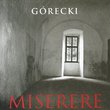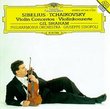| All Artists: Perotin, Trouveres Anonymous, Research Composer, Leonin, Bo Holten, Ann-Christine Wesser Ingels, Susannah Carlsson, Amy Vestbø, Malene Nordtorp Title: Seized By Sweet Desire Members Wishing: 0 Total Copies: 0 Label: Naxos Original Release Date: 1/1/2009 Re-Release Date: 10/27/2009 Genres: Special Interest, Pop, Classical Styles: Vocal Pop, Opera & Classical Vocal, Historical Periods, Early Music Number of Discs: 1 SwapaCD Credits: 1 UPCs: 747313226573, 747313226573 |
Search - Perotin, Trouveres Anonymous, Research Composer :: Seized By Sweet Desire
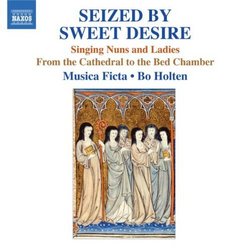 | Perotin, Trouveres Anonymous, Research Composer Seized By Sweet Desire Genres: Special Interest, Pop, Classical |
Larger Image |
CD DetailsSimilar CDsSimilarly Requested CDs
|
CD ReviewsEarly Music: it's not just for men! Jim D. | NYC | 05/14/2010 (5 out of 5 stars) "It is a truth universally acknowledged--but ready for a second look--that music in the Middle Ages was written and performed exclusively by males. Musica Ficta's director Bo Holten makes the point that nuns in their cloisters must surely have offered music at Mass (Hildegard vonBingen, anyone?), and that some of the "trouvere" songs come from a very female perspective. Holten leads his all-female ensemble in deft execution of the intricate Notre Dame motets and in merry singing of infidelity and the pleasures of the flesh. (You will notice how similar in sound secular and sacred music were in the Middle Ages.) If you're a fan of Anonymous 4, much of this is not news to you. If you'd like to explore this musical by-way for the first time, here's a modestly-priced guide (texts and translations included). " Seized by Sweet Desire E. S. Wilks | Hockessin, DE USA | 11/08/2009 (5 out of 5 stars) "This delightful CD gives us a glimpse into what a ground-breaking invention the introduction of three- and four-part notated music (polyphony) was versus single-line notated music. Credit for this invention is given jointly, around the year 1200, to Perotin (a.k.a. Perotinus Magnus or Magister Perotinus) and Leonin (a.k.a. Leoninus, Leonius, or Leo). Tracks 1 and 2 offer examples by Perotin of triple and quadruple organum, respectively; organum may be defined as any of several types of medieval vocal polyphony, usually based on Gregorian chant. The contrast with "traditional" monophonic Gregorian plainchant, with respect to both polyphony and the rhythmical changes incorporated, is astounding. Tracks 10 and 12 similarly offer compositions of Leonin.
For many years, it was assumed that, apart from a few noted pioneers such as Abbess Hildegard of Bingen (1098-1179), Francesca Caccini (1587-c1645), and Elisabeth Jacquet de La Guerre (1665-1729), there were very few documented women composers before 1700; indeed, Vitezslava Kapralova's database lists only around 25. Since it was considered "improper" for women to compose, most women composers' works were either unidentified or passed off as the work of a man. Apart from the assumption that nuns sang in private, little was known about women singers. Tracks 3-9 offer songs by women troubadours, who were much more active as composers and singers than many male musicologists would have had us believe. All the excerpts on this CD are sung by women, and most were probably written for women to sing. Musica Ficta, a Copenhagen-based group that specializes in early vocal music, polyphony, madrigals, and medieval music, performs splendidly under Bo Holten's directorship. Highly recommended! Ted Wilks" |




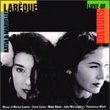
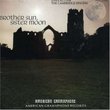
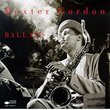

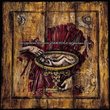


![Across The Universe [Deluxe Edition]](https://nationalbookswap.com/cd//m/51/1251/1241251.jpg)
